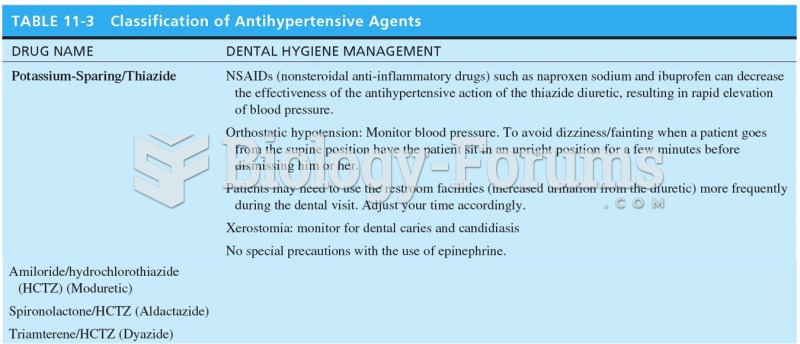|
|
|
The Romans did not use numerals to indicate fractions but instead used words to indicate parts of a whole.
Anti-aging claims should not ever be believed. There is no supplement, medication, or any other substance that has been proven to slow or stop the aging process.
It is believed that humans initially contracted crabs from gorillas about 3 million years ago from either sleeping in gorilla nests or eating the apes.
Automated pill dispensing systems have alarms to alert patients when the correct dosing time has arrived. Most systems work with many varieties of medications, so patients who are taking a variety of drugs can still be in control of their dose regimen.
More than nineteen million Americans carry the factor V gene that causes blood clots, pulmonary embolism, and heart disease.







